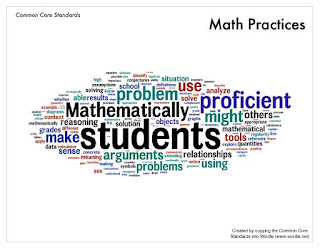Note: I will be attempting to post on the 25th of each month this year as part of a #DITLife project s which is being coordinated by Tina Cardone @crstn85.
| This first post for the #DITLife Project is a reflection on the first half of my career. I began my teaching career twenty-four years ago as a substitute teacher in the fall of 1992 in Ames, Iowa. Many new teachers may think that subbing is not real teaching, but by substituting in 4 different schools I learned how teachers can be organized (and disorganized) and I learned how to not give in to students. Imagine the students saying, "But Mrs. Smith never has us do our work during the last 10 minutes of class. She lets us talk." Probably not true and then again, I am not Mrs. Smith. |
Then, I moved into teaching part time and eventually full time. I thought at some point teaching would get easier and that I would be a master teacher. I would know my content, walk to the front of the classroom and just teach. I planned to get it all figured out. Mr. Phil Johnson, a Geometry teacher at the first school I taught at in Ames, Iowa, had it figured out. He would have all of his tests and papers from the entire year copied within the first month of school. His students worked hard. He had them working in groups every day and putting problems on the board. His classroom was covered from floor to ceiling in student projects. Teaching only the Honors level classes, Mr. Johnson made teaching look easy.
|
| But the truth that I have learned from my own experiences over the past twenty-four years of teaching is that teaching is far from easy. I may never have it all figured out. There is always something new going on: new students, new administration, new state standards, new curriculum, new parents, new pedagogy, and new technology. There is so much reflection to be done and so little time to do it! |
| Now Think More Slowly: Rarely is there time for deep reflection during the school year. (I think you will see what I mean once I start writing more #DITLife posts.) Deeper reflection for me happens on snow days and during the summer. Although a few of my summer days are spent relaxing in Maine, other days are spent coming up with new activities and thinking about what I will do differently in the coming year. This summer I read a book called "The 5 Levels of Leadership" by John Maxwell in order to become a better leader with all of the teachers at my school. In addition, I did a blog post reflecting on a golf lesson and how the lesson reminded me about some components of good teaching. |
There was also time this summer for developing some ideas I will use in teaching AP Statistics. Over several days, I created an activity related to sample size, called "How Big Must Your Sample Be for a Good Estimate". Some students think that if the population size is larger that a larger sample size is necessary to get a good estimate. This activity is designed to help them see the flaw in their thinking. The activity can be adopted for use with Fathom or StatKey and the video I posted to my YouTube channel called "How Big Must Your Sample Be" shows how this can be done. In addition, here is the link to this activity and a here is the link to the Fathom file for the activity.
My idea of what it means to be a master teacher has changed over the years. It is not the teacher who has everything planned out from Day 1. It is not the teacher who has taught the same thing in the same way for many, many years. My idea of a master teacher is one who continues to grow and learn in order to best meet the needs of the students that are in front of him or her on any given day. Although I enjoy the challenges encountered in the consulting work I have done and it is very satisfying to tutor individual students in math, the greatest joy in my career comes from being in the classroom with students. So, where do I see myself twenty-four years from now? I hope I will be continuing to create a culture of trust in a classroom full of students where multiple perspectives are valued. I hope I will be continuing to help students grow in their understanding and appreciation of mathematics.



No comments:
Post a Comment